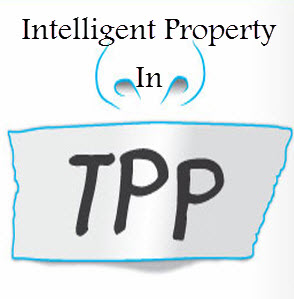Intellectual Property in The Trans-Pacific Partnership Agreement (TPP)
Summary on Intellectual Property in The Trans-Pacific Partnership Agreement (TPP)
Post date: 27-03-2016
3,564 view(s)

Intellectual Property in The Trans-Pacific Partnership Agreement (TPP)
Intellectual Property in The Trans-Pacific Partnership Agreement (TPP) chapter covers patents, trademarks, copyrights, industrial designs, geographical indications, trade secrets, other forms of intellectual property, and enforcement of intellectual property rights, as well as areas in which Parties agree to cooperate. Intellectual Property in The Trans-Pacific Partnership Agreement (TPP), the chapter will make it easier for businesses to search, register, and protect IP rights in new markets, which is particularly important for small businesses.
Intellectual Property in The Trans-Pacific Partnership Agreement (TPP), the chapter establishes standards for patents, based on the WTO’s TRIPS Agreement and international best practices. On trademarks, it provides protections of brand names and other signs that businesses and individuals use to distinguish their products in the marketplace. Intellectual Property in The Trans-Pacific Partnership Agreement (TPP), the chapter also requires certain transparency and due process safeguards with respect to the protection of new geographical indications, including for geographical indications recognized or protected through international agreements. These include confirmation of understandings on the relationship between trademarks and geographical indications, as well as safeguards regarding the use of commonly used terms.
In addition, Intellectual Property in The Trans-Pacific Partnership Agreement (TPP), the chapter contains pharmaceutical-related provisions that facilitate both the development of innovative, life-saving medicines and the availability of generic medicines, taking into account the time that various Parties may need to meet these standards. The chapter includes commitments relating to the protection of undisclosed test and other data submitted to obtain marketing approval of a new pharmaceutical or agricultural chemicals product. It also reaffirms Parties’ commitment to the WTO’s 2001 Declaration on the TRIPS Agreement and Public Health, and in particular confirms that Parties are not prevented from taking measures to protect public health, including in the case of epidemics such as HIV/AIDS.
In copyright, Intellectual Property in The Trans-Pacific Partnership Agreement (TPP), the chapter establishes commitments requiring protection for works, performances, and phonograms such as songs, movies, books, and software, and includes effective and balanced provisions on technological protection measures and rights management information. As a complement to these commitments, the chapter includes an obligation for Parties to continuously seek to achieve balance in copyright systems through among other things, exceptions and limitations for legitimate purposes, including in the digital environment. The chapter requires Parties to establish or maintain a framework of copyright safe harbors for Internet Service Providers (ISPs). These obligations do not permit Parties to make such safe harbors contingent on ISPs monitoring their systems for infringing activity.
Finally, TPP Parties agree to provide strong enforcement systems, including, for example, civil procedures, provisional measures, border measures, and criminal procedures and penalties for commercial-scale trademark counterfeiting and copyright or related rights piracy. In particular, TPP Parties will provide the legal means to prevent the misappropriation of trade secrets, and establish criminal procedures and penalties for trade secret theft, including by means of cyber-theft, and for cam-cording.
Lawyervn.net- Vietnamese Attorney














Send your comment